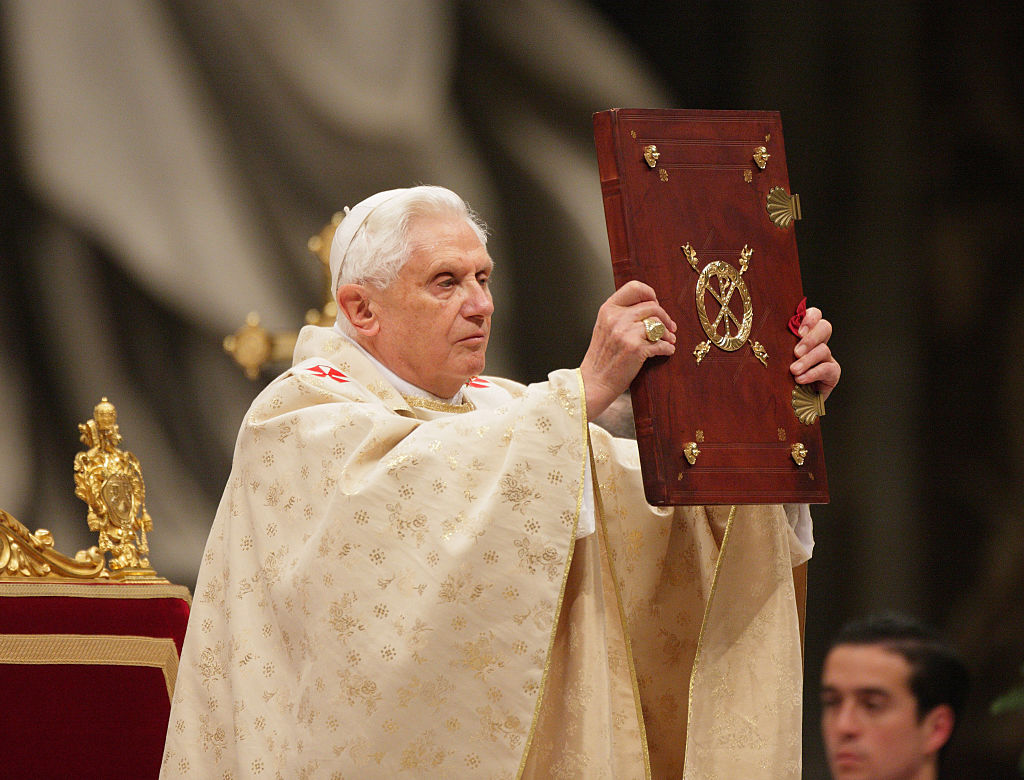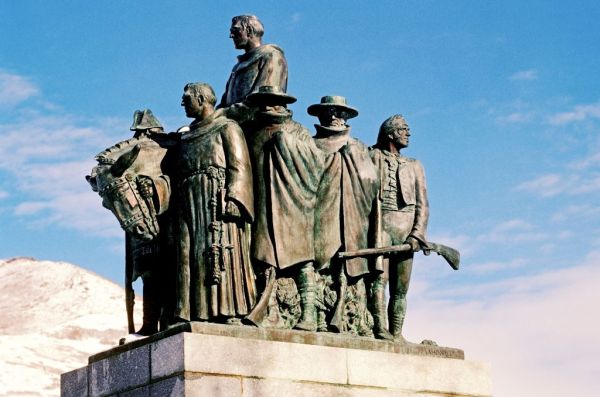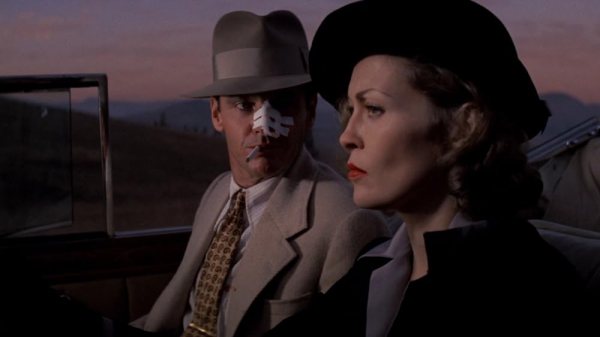Of all the men to sit in the Chair of St. Peter, Benedict XVI surely ranks as one of the intellectual giants. Even before becoming pope in 2005, he had a formidable reputation as a thinker. Whether the subject was Europe’s future or the relationship between ethics and economics, Joseph Ratzinger certainly had written something insightful on the topic.
That erudition wasn’t confined to the academy. I long ago lost count of the number of people I have met from all walks of life who have told me that, through reading one or more of his 86 books and 471 articles, they had come to a better understanding of Christianity and a deeper knowledge of Jesus of Nazareth. In many cases, the end result was conversion to Catholicism.
For Benedict, Christianity wasn’t a collection of ideas. It was ultimately about the truth of the life, death, and resurrection of Jesus Christ and how this revealed God’s deep love for humanity. Nonetheless, ideas were deeply important to Ratzinger as it was through words that this truth was conveyed and explained.
Benedict also witnessed throughout his life the power of ideas—for better and for worse. Growing up under the National Socialist dictatorship in Germany, he saw first-hand how much evil can flow from seriously wrong ideas. After World War II, he witnessed how Marxist ideas legitimated Communist tyrannies across Central and Eastern Europe and eventually drove the madness which swept through Western universities and culture in 1968, the price for which we are still paying.
These and related events caused Benedict to reflect long and hard about what had gone wrong in the world of ideas. There were many explanations, but his work always returned to the debate about the nature and ends of reason.
In the conditions of modernity, reason is invariably associated with the various Enlightenments. It surprises many when I tell them that Benedict was no knee-jerk anti-Enlightenment type. One of the greatest misrepresentations of Ratzinger is that he was essentially a reactionary. An hour or so spent perusing his writings is enough to disabuse anyone of that myth.
On the contrary, Benedict had no hesitation in acknowledging the achievements of different Enlightenment thinkers. His writings reflect profound appreciation of the nuances of the various Enlightenments. On several occasions, Benedict carefully distinguished between the Enlightenment movements associated, for instance, with the French Revolution, and those which characterized the Anglo-American Enlightenment experience. The latter, he thought, lacked the former’s anti-Christian impulses, and marked far less of a radical break with older Western traditions. Here, Ratzinger once wrote, his thought was very much aligned with the 19th century French liberal thinker Alexis de Tocqueville, whom he called “le grand penseur politique.”
The problem facing modernity, Benedict believed, was that it risked closing off reason to knowledge of things beyond the empirical and the measurable. In other words, despite all its achievements in the natural and social sciences, the modern world was beleaguered by an unduly narrow conception of reason.
The modern sciences, which, Benedict often noted, first took on contemporary form in the high Middle Ages, had allowed humanity to exercise unparalleled mastery over the natural world. Yet empirical rationality could not and cannot determine what are good and evil uses of technology. That required other forms of reasoning: those which provide us with insight into what is good, and how we might make free choices for the good and never choose evil.
This loss of reason’s greater horizons had, Benedict emphasized, serious consequences for the religious and secular realms. In the world of religion, he argued, reason’s diminishment tended to diminish Christian love to mere sentimental humanitarianism.
In the post-Vatican II Catholic church, this was reflected in the reduction of Christ by many theologians and more than a few priests, bishops, and cardinals to a type of celestial therapeutic Teddy Bear: one who never corrects us and who simply affirms us, no matter how stupid or evil our actions might be.
After a while, no one is likely to take such a God very seriously. The same outlook also results in ethics getting reduced to talk of feelings and lived experience, or, alternatively, diminished to trying to determine the morality of an act by measuring all of an act’s good and evil consequences—as if such things are somehow quantifiable or even completely knowable ahead of time.
In some ways, the results of reason’s diminishment have proved even more disastrous for society more broadly. It produces, for example, scholars who exalt the importance of scientific rationality but can’t recognize that the natural sciences rest on axioms of a non-scientific character—including the logical principle of non-contradiction, and the self-evident truth that error is to be avoided while the truth is to be known.
As Benedict was fond of pointing out, free pluralistic societies that lack a robust conception of philosophical reason lack the means to identify universal truths beyond vagaries like “be nice.” The very idea that there are universal natural rights (a concept traceable back to Thomas Aquinas) that everyone can know via reason becomes untenable without such a foundation in natural law itself. Questions of right and wrong thus get reduced to the will of whoever is the most powerful, whether by virtue of their willingness to use their fists or their ability to muster tame voting majorities at election time. In such circumstances, institutions like rule of law and constitutional limits on state power seem quaint—and ultimately disposable.
Much of Benedict’s thought—whether as pope, John Paul II’s Prefect for the Congregation of the Doctrine of the Faith, or theologian—was devoted to thinking through these problems. It helped produce, for instance, one of the 20th century’s most important papal encyclicals, John Paul II’s Veritatis Splendor. Among other things, this powerfully reaffirmed the Catholic church’s ancient teaching that there are certain acts (murder, lying, theft, etc.) which reason itself tells us may never be chosen, no matter what the circumstances or the chooser’s intentions. Another was a growing insistence, most famously captured in Ratzinger’s famous 2005 “dictatorship of relativism” speech, that the belief that all morality is essentially relative opened the way to the tyranny of the strong over the weak.
Benedict’s efforts to rehabilitate within the church and society this more expansive conception of reason ultimately cohered around a central point: one that small-o orthodox Christianity has always stressed but which, from time to time, gets lost sight of. This is the idea of God as Logos.
Our possession of reason, Benedict underscored, mirrored the fact that men and women were made, as the Book of Genesis states, in the imago Dei: in the image of the same God identified in the first sentence of the Gospel of John as the Logos—Divine Reason. For Benedict, the Logos wasn’t an abstract metaphysical postulate. Jesus was the Logos made flesh who died for us: the reasonable God who stood at the beginning of time and who had entered directly into human history.
Not only does this mean that the Christian God is utterly unlike the unpleasant, fickle, selfish deities of the pagan world who use and abuse mortals at will. Instead, the God of Love is also the God who personifies Reason: the Logos that, “in the beginning,” infused order into the universe and bestowed upon the human mind the ability to know much of that order under its own volition. This same God’s innate reasonableness also meant that his love could never be corrupted into sentimentality.
Benedict’s emphasis on reason shouldn’t be interpreted as suggesting that he was some type of rationalist. For one thing, he well knew that man is not God; ergo, the power of our minds can never exceed that of the Logos.
But Benedict also took solace in the faith of those he called uncomplicated people: those who might not have theology doctorates but who believed that Jesus of Nazareth is precisely who he said he was, who trusted in the witnesses who attested to Christ’s deeds and works, and who found joy and hope in that knowledge. Many of those people, Benedict stressed, were the saints who walked among us, unacknowledged and often unknown in the here-and-now, but whose full light would be evident in the world to come.
In the Christian Gospels, the word “light” often functions as a synonym for the truth, intellect, and intelligibility of God. It’s a reminder of a point which Benedict made in his Spiritual Testament, released on the day of his death: That, “out of the tangle of hypotheses,” we can have confidence in “the reasonableness of faith.”
That we can indeed have such confidence, I believe, will be the pope of reason’s most important and lasting message to a church and world that sorely needs it.








Please note that we at The Dispatch hold ourselves, our work, and our commenters to a higher standard than other places on the internet. We welcome comments that foster genuine debate or discussion—including comments critical of us or our work—but responses that include ad hominem attacks on fellow Dispatch members or are intended to stoke fear and anger may be moderated.